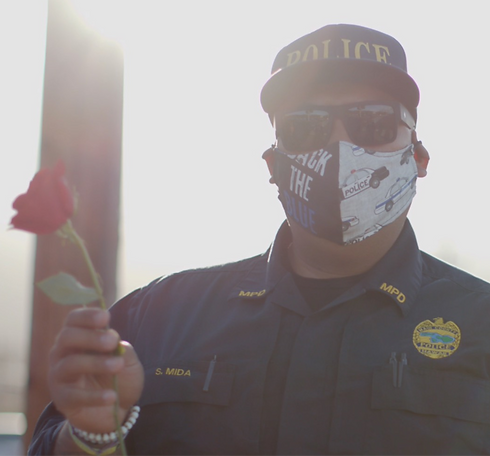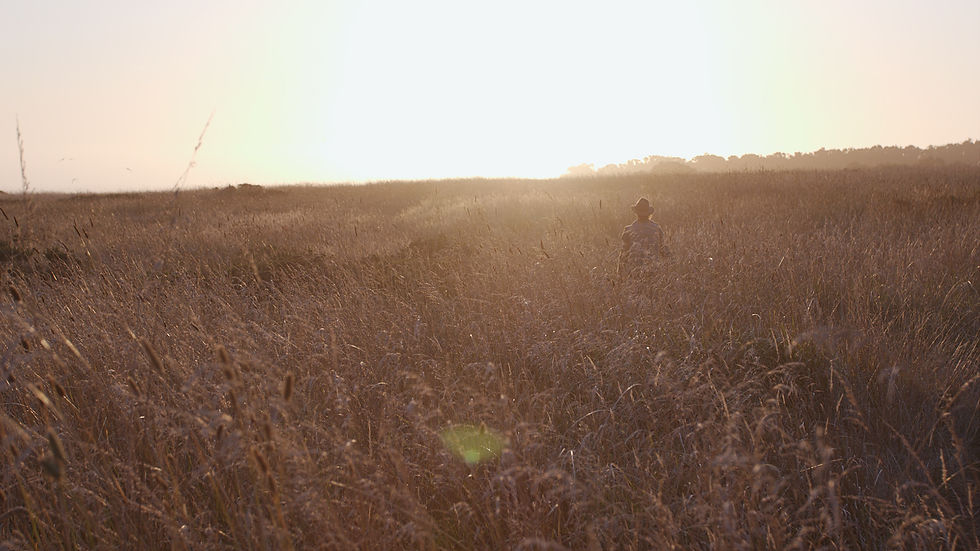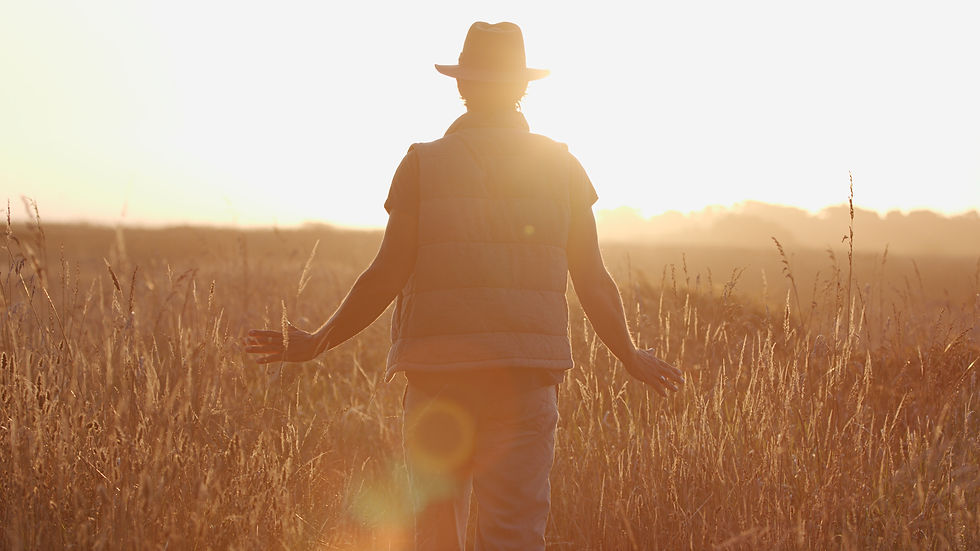
PRESS RELEASE

BE HERE
New Release
Music and Lyrics - Shaun Simmons
————————
Recording Musicians
Shaun Simmons - Lead vocal and guitars
Helen Mountfort - Cello
Catherine McQuade - Bass, BVs
Leo Dale - BVs, Soprano sax
Tony Floyd - Drums
Nick Hermanus - Guitar
Tanya Kwan Simmons - Keys, BVs
————————
Recorded, mixed and mastered at Wefo Studios by Leo Dale
Tracks
Be Here (Rock Ballad)
Freedom (Rock Anthem)
Our Country (Country Folk)
In Mother's Arms (Lullaby)
Recording Musicians


Catherine McQuade - Bass, BVs
Shaun Simmons - Lead vocal and guitars

Helen Mountfort - Cello



Tanya Kwan Simmons - Keys, BVs
Leo Dale - BVs, Soprano sax
Nick Hermanus - Guitar

Tony Floyd -Drums
Creation Story
Shaun and Leo recently met in February 2023 in Magod India, through a mutual teacher at Shanti Mandir. Leo was traveling with his soprano sax at the time and played with the local Indian musicians. Shaun and Leo affectionally joked, we should record some music together sometime.
In the month of May, Shaun returned to Perth, Australia and contacted Leo with the excitement of a new guitar to begin the conversation of a collaboration.


Shaun, being of the Noongar Aboriginal peoples, felt a deep yearning to record the music on his homeland,
Leo, based in Melbourne, was on Shaun's way to the Americas. So a week of play and recording in the "house of fun", so affectionately named, commenced.
Leo assembled an awesome band of local musicians, to collaborate and create what is now known as the BE HERE release.
Songlines

Our Country Lyrics
To the North and South
To the East and West
We rise above the eagles nest
Buffalo, Kangaroo
Rising sun, laughing Cockatoo
Pink dolphin, guiding way
Tuscany a holiday
Amazon running free
Jungle floor ceremony
When you walk this country
The country takes care of you
Aloha, No Ka Oi
Malama, Rainbow joy
Volcano, Dolphin dreams
The Whale knows no in-between
When you walk this country
The country takes care of you
Malama Our Country
Take care of Our Country
Our Country shares the story of Shaun's walkabout.
A walkabout is a traditional Aboriginal cultural practice that involves a journey or period of wandering undertaken by Indigenous Australians, particularly those belonging to the Aboriginal tribes or nations of Australia. Walkabouts have been an integral part of Aboriginal culture for thousands of years and hold deep spiritual, social, and educational significance. Much like the vision quests of the Americas.
During a walkabout, an Aboriginal individual, often a young adult or adolescent, embarks on a journey into the wilderness or ancestral lands. This journey serves multiple purposes, including spiritual connection, initiation into adulthood, cultural education, and exploration of the land.
The duration and purpose of a walkabout can vary among different Aboriginal communities and individuals, but they generally involve a significant period of time ranging from a few weeks to several months. This one in particular lasted 22 years. The walkabout may be initiated for various reasons, such as seeking spiritual guidance, connecting with ancestral roots, or undergoing a rite of passage.
During a walkabout, the individual relies on their knowledge of the land, passed down through generations, to navigate and survive in the wilderness. They may live off the land, hunting for food, gathering plants, and engaging in traditional practices such as fire-making, bushcraft, and tracking.
The spiritual aspect of a walkabout is of great importance. It is seen as a time of reflection, introspection, and connection with the Dreamtime, the spiritual realm of Aboriginal belief. The individual seeks guidance from the ancestral spirits and gains a deeper understanding of their cultural identity and responsibilities.
Walkabouts also serve as an educational experience, where younger members of the community learn from their elders. Elders share cultural knowledge, stories, and traditions, passing on important lessons about their people's history, land, and customs. This intergenerational exchange strengthens the cultural fabric of the community.
Today, while walkabouts are still practiced by some Aboriginal communities, they have evolved to adapt to modern realities. Some may combine traditional practices with contemporary elements, such as incorporating aspects of formal education, environmental conservation, or engaging with non-Indigenous society to raise awareness about their culture.
Overall, the Aboriginal walkabout represents a profound journey of self-discovery, cultural immersion, and spiritual connection to the land and ancestors. It is a testament to the resilience, wisdom, and rich cultural heritage of Indigenous Australians.
Today, with the ease of travel and technology, the journey can be a global walkabout. As this one was.
From the lands of the Western Australian aboriginal Noongar peoples, the story follows a journey of curiosity with a deep peace of the unknown. guided by a pink dolphin to Peru and then onto the Hawaiian islands.
The phrases "To the North and South, To the East and West" suggest a sense of expansiveness and openness to new experiences. The mention of animals like Buffalo, Kangaroo, and Pink dolphin, as well as the rising sun and laughing Cockatoo, emphasizes the diversity and richness of the natural world.
The lines "Tuscany a holiday" and "Amazon running free" evoke a sense of the travel and adventure, while "Jungle floor ceremony" hints at a deeper spiritual connection to the natural world. It speaks about the idea that by immersing ourselves in nature, we can find a sense of wonder and renewal.
The line, "When you walk this country, the country takes care of you," speaks to the idea that by respecting and caring for the natural world, Our Country, we can find a sense of belonging and connection to it, and then the Country takes care of you.
The second verse contains a beautiful and evocative mixture of Hawaiian and oceanic imagery. They speak to the power and beauty of nature and the connection between different elements of the natural world.
The phrase "Aloha, No Ka Oi" suggests a deep appreciation for the Hawaiian spirit of love, compassion, and respect. "Malama" invokes the idea of caring for and nurturing the natural world, while "Rainbow joy" brings to mind the beauty and wonder of nature's colors.
The mention of a volcano and dolphin dreams is particularly striking, evoking both the power and dynamism of nature as well as the playfulness and joy of ocean life. The final line, "The Whale knows no in-between," speaks to the idea that nature exists in a state of constant movement and transformation, with no clear boundaries or limitations as is the Whales love.
More Releases
City of Roses
We believe in the power of song and cinema to Inspire one to aspire.
[OFFICAL MUSIC VIDEO]




Learning to Fly
[OFFICAL MUSIC VIDEO]


A Story of Place - The Song of the Land
Travelling Light
[OFFICAL MUSIC VIDEO]







